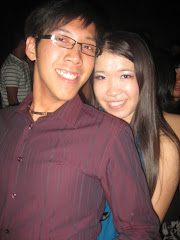
“Non-cooperation is a measure of discipline and sacrifice, and it demands respect for the opposite views”
Mahatma Gandhi, Father of the Nation for India
My interpersonal conflict experience happened during summer of 2007, where I was part of the engineering committee for Sheares Hall’s Rag and Flag.
(Rag and Flag is an annual event held in the beginning of the academic year in NUS, where faculties and halls of residence have to build a themed float from recyclable and environmental friendly materials.)
The engineering committee consisted of six members, including team leader Jason (name not real). Initially, we bonded well and respected each other’s suggestions, discussing ideas to come up with engineering concepts for different segments of the float. What started out as a fun-loving team became one that was full of conflicts between the members and their leader.
Over time, designs became complex, deadlines drew closer, and stress levels began to rise. Our discussions with Jason turned into quarrels, until it came to a point where he started ignoring our suggestions. Furthermore, he was absent most of the time, returning after working hours only to criticize our workmanship. Coupled with the lack of sleep, my team mates and I started feeling frustrated, overworked, and under-appreciated. We started isolating ourselves from him, giving him one-answered response should he converse with us. Occasionally, we would go for supper after work, where we complained about work and Jason.
Obviously, Jason noticed the change. Since he knew me longer than the rest, he consulted me about the situation, and I told him everything that was happening. He acknowledged whatever I said and vowed to change. The situation did change, just that it got worse, with conflict reaching climax.
We were working on a segment of the float when he came to voice his disapproval, giving us his “suggestion” that was too complex to construct. We decided to proceed with our initial concept without consulting him. When he saw what was happening, he yelled derogatory remarks at us. He walked away, and so did we, but in different directions.
We patched things up eventually, and worked until the competition day itself. Perhaps the whole fiasco could have been prevented if we had a clearer picture of the end goal in mind – to be champions of the competition. Although we all remained friends with Jason, we swore never to work with or under him again.
There were many factors which brought us to such a situation – stress, miscommunication, personality difference etc. What could we have done to resolve the situation? In fact, what could we not have done to avoid that situation?
Author’s note: We won first place and Jason and I are currently working on another hall project.




